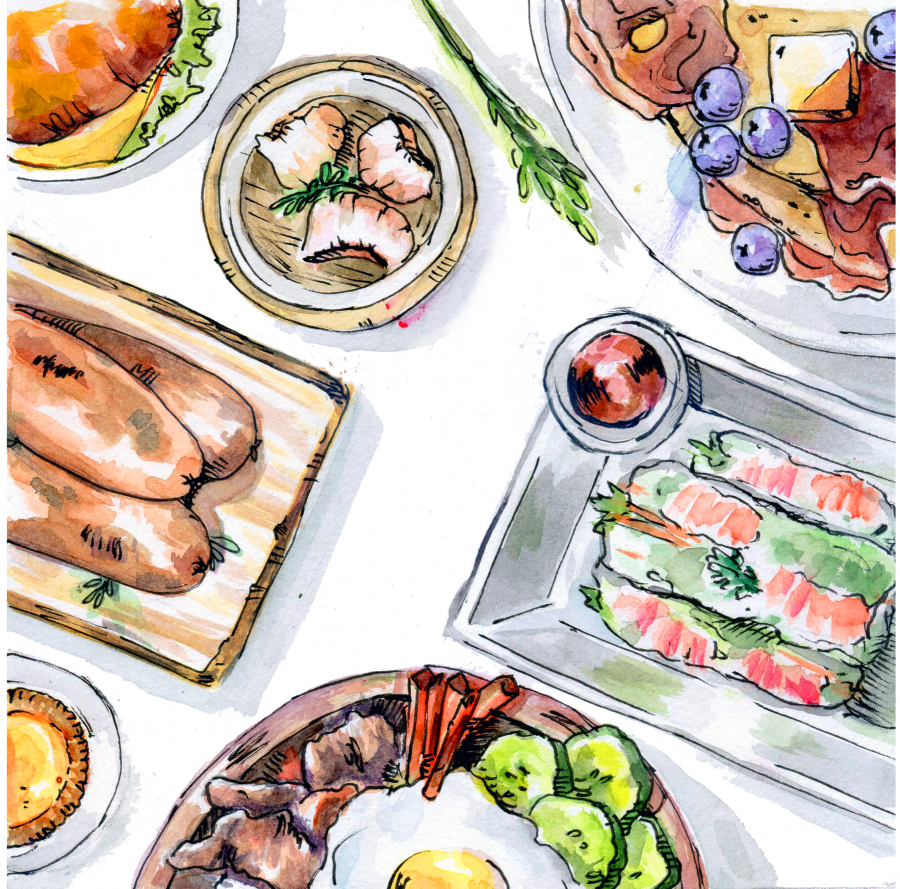How can anyone call this restaurant authentic? Where can I find some real food?
When I first moved to Austin, I frequently found myself saying this every time I visited a low-quality taqueria. Why weren’t there any restaurants near campus that offered tacos like the ones from my home in the Rio Grande Valley? Why did every tortilla taste like it had been microwaved? Why were black beans so popular?
While I certainly ate a lot of tacos around campus that didn’t meet my personal standards, I can now admit that thinking in terms of authenticity wasn’t the best approach. Instead of calling a restaurant or cuisine authentic, students should focus on what type of food they enjoy.
Here’s why: An article recently published in "Eater New York" asserted that the term “authentic” reinforces the idea that nonwhite restaurants must be inexpensive or unclean in order to deserve the title “authentic” — a form of white supremacy.
In addition to perpetuating racist stereotypes, this rhetoric can also make it difficult for a person of color to succeed in a market that demands authentic food and only believes its authenticity if it is cheap or comes from an impoverished place.
Inspired by this article, which examined around 20,000 Yelp reviews, I decided to look at popular restaurants around campus to get a better idea of how frequently this rhetoric is used by students.
I found that several restaurants around UT have been described as “authentic” on Yelp. A quick search of the top ten restaurants in West Campus ranks Don Japanese Kitchen as the number one restaurant in the area. Six reviews use the word “authentic” to describe Don.
Ranked number two, Julie’s Handmade Noodles has 38 reviews that include “authentic.” Halal Bros, another West Campus favorite, has nine reviews that mention authenticity. Clearly, authenticity is something that UT students value.
“The term itself is not problematic, but its usage sometimes is,” wrote UT graduate Allison Huynh in a message.
Applying the term “authentic” also has the potential to suggest that one type of food or restaurant is representative of an entire country, race, or ethnicity. For example, saying a restaurant serves authentic Mexican food completely ignores the vast regional variety that exists across Mexico.
Of course, it’s one thing to call a restaurant authentic when you know little about the culture from which it originates and another when you’re speaking from the perspective of your own culture.
According to Huynh, when people of color use the word “authentic,” they compare it to their own experiences and cultures. This isn’t always the case for people of a different racial background using the term to describe another culture’s cuisine.
Instead of calling a restaurant or cultural space “authentic,” students should instead focus on what they enjoy about a restaurant. Don’t worry about whether or not a restaurant is authentic enough — own your tastes and interests.
“I realized that when I have the urge to say ‘authentic’ sometimes, I actually mean traditional — as in more culturally appropriate and true-to-roots foods as opposed to Americanized and/or fusion dishes,” Huynh wrote.
However you decide to describe a restaurant, avoid using the term “authentic.” Given the diversity of restaurants that exists around campus, there are countless descriptors that better communicate restaurant quality, atmosphere and overall experience.
López is a rhetoric and writing junior from McAllen.





















